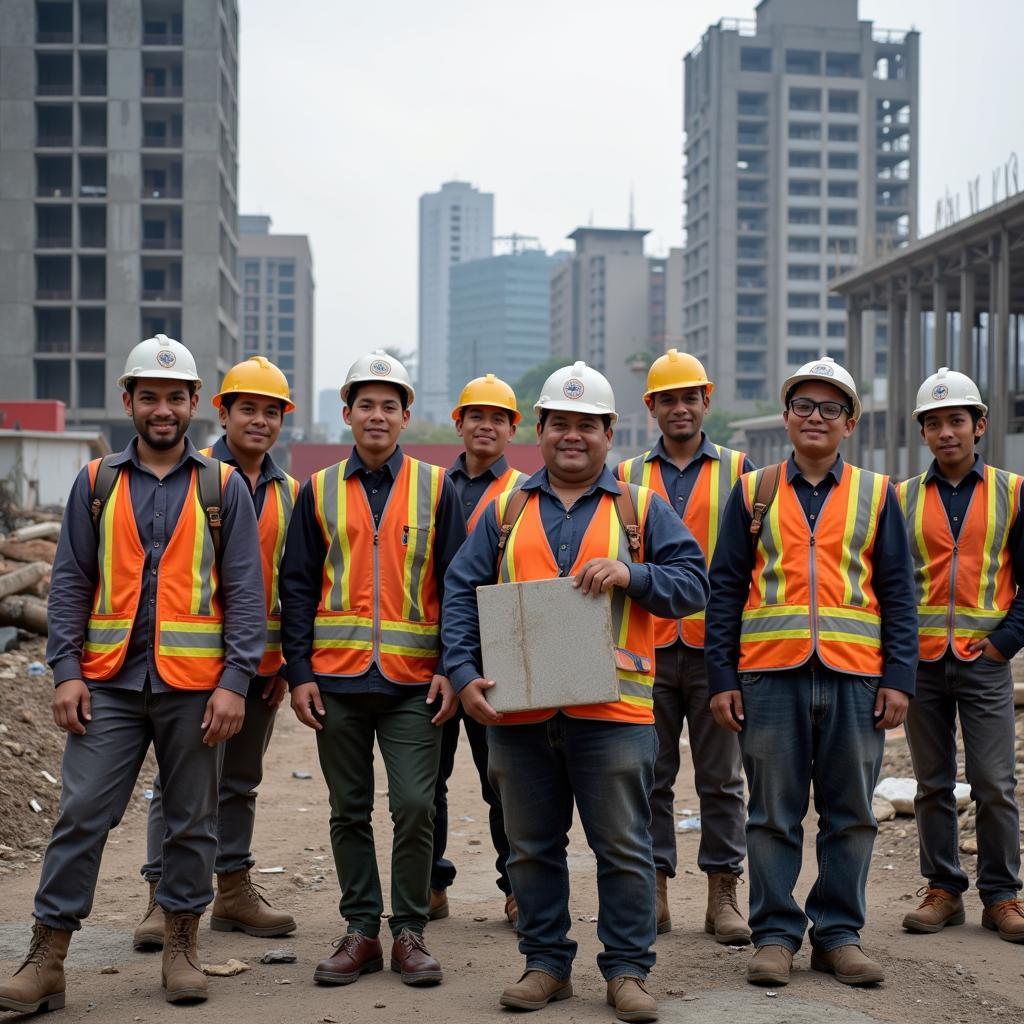The 2007 Asean Declaration On The Rights Of Migrant Workers stands as a pivotal document aiming to safeguard the rights and welfare of migrant workers within the Association of Southeast Asian Nations (ASEAN). This declaration highlights the commitment of ASEAN member states to promote fair and humane treatment of all migrant workers, regardless of their skill level or employment sector.
The Importance of Protecting Migrant Workers’ Rights in ASEAN
The ASEAN region is characterized by a significant flow of migrant workers, many of whom move from less developed to more developed economies in search of better job opportunities and improved living standards. This movement of labor contributes significantly to the economic growth of both sending and receiving countries. However, it also presents challenges in ensuring that migrant workers’ rights are protected.
Migrant workers often face vulnerabilities due to their status as non-citizens, language barriers, and limited access to social protection. They may be subjected to exploitation, abuse, and discrimination. The 2007 ASEAN Declaration recognizes these challenges and emphasizes the shared responsibility of ASEAN member states to address them.
Key Provisions of the 2007 ASEAN Declaration
The declaration outlines a comprehensive set of principles and commitments to protect and promote the rights of migrant workers. Some of the key provisions include:
-
Respect for Fundamental Rights: The declaration emphasizes that migrant workers, regardless of their documentation status, are entitled to the same fundamental human rights as nationals of the receiving country. This includes the right to life, liberty, security, freedom from torture or cruel, inhuman or degrading treatment or punishment, and freedom from slavery or forced labor.
-
Protection Against Exploitation and Abuse: ASEAN member states commit to preventing and eliminating all forms of exploitation, abuse, and violence against migrant workers. This includes measures to combat trafficking in persons, forced labor, and debt bondage.
-
Fair and Ethical Recruitment: The declaration stresses the need for fair and ethical recruitment practices to protect migrant workers from exploitation during the recruitment process. This includes regulating recruitment agencies, promoting transparent contracts, and eliminating excessive recruitment fees.
-
Access to Justice and Legal Remedies: Migrant workers should have equal access to justice and effective legal remedies in case their rights are violated. This includes access to courts, legal aid, and mechanisms for dispute resolution.
-
Social Protection and Access to Basic Services: ASEAN member states agree to promote access to basic services for migrant workers, including healthcare, education, and social security. This also includes ensuring that migrant workers and their families have access to affordable remittances services.
 Migrant Workers at a Construction Site
Migrant Workers at a Construction Site
Challenges and Progress in Implementation
While the 2007 ASEAN Declaration represents a significant step towards protecting migrant workers’ rights, challenges remain in its full implementation. Some of the key challenges include:
-
Lack of Binding Mechanisms: The declaration is not legally binding, which limits its enforceability. While ASEAN member states are encouraged to implement the declaration’s provisions through national laws and policies, progress has been uneven across the region.
-
Limited Access to Information: Many migrant workers remain unaware of their rights under the declaration, making it difficult for them to seek redress in case of violations.
-
Weak Enforcement Mechanisms: Even when laws and policies are in place, weak enforcement mechanisms can hinder their effectiveness. This can be due to factors such as corruption, limited resources, or lack of political will.
Despite these challenges, there has been progress in some areas. Several ASEAN member states have made efforts to improve their labor laws and policies, establish bilateral agreements on labor migration, and strengthen mechanisms for dialogue and cooperation with sending countries.
The Role of Civil Society and International Organizations
Civil society organizations (CSOs) and international organizations play a crucial role in advocating for migrant workers’ rights, monitoring the implementation of the ASEAN Declaration, and providing support services to migrant workers in need.
CSOs often act as a bridge between migrant workers and governments, providing essential information, legal aid, and access to social services. International organizations, such as the International Labour Organization (ILO) and the International Organization for Migration (IOM), provide technical assistance to governments in developing and implementing policies to protect migrant workers’ rights.
Conclusion: Towards a More Inclusive and Rights-Based Approach to Migration
The 2007 ASEAN Declaration on the Rights of Migrant Workers represents a commitment to protect the rights and welfare of migrant workers, who play a vital role in the region’s economy and society.
While challenges remain in fully implementing the declaration, continued efforts to strengthen national laws and policies, promote fair and ethical recruitment practices, enhance access to justice, and empower migrant workers through information and support services are crucial for creating a more just and equitable environment for all.
By working together, ASEAN member states, civil society organizations, and international organizations can help ensure that migration is a positive and empowering experience for all involved.
FAQs about the 2007 ASEAN Declaration on the Rights of Migrant Workers
1. What is the legal status of the 2007 ASEAN Declaration on the Rights of Migrant Workers?
The declaration is not a legally binding treaty. It serves as a political commitment by ASEAN member states to uphold and promote the rights of migrant workers.
2. Which countries are covered by the declaration?
The declaration applies to all ten ASEAN member states: Brunei Darussalam, Cambodia, Indonesia, Lao PDR, Malaysia, Myanmar, the Philippines, Singapore, Thailand, and Vietnam.
3. What are some key challenges in implementing the declaration?
Some of the challenges include the non-binding nature of the declaration, weak enforcement mechanisms, and limited awareness of rights among migrant workers.
4. What is the role of civil society organizations in protecting migrant workers’ rights?
CSOs play a crucial role in advocating for migrant workers’ rights, providing information and support services, and monitoring the implementation of the declaration.
5. Where can I find more information about the 2007 ASEAN Declaration on the Rights of Migrant Workers?
You can find more information on the ASEAN Secretariat website or the websites of relevant international organizations, such as the ILO and IOM.
Need further assistance?
For any inquiries or support regarding the 2007 ASEAN Declaration on the Rights of Migrant Workers, please reach out to us:
Phone Number: 0369020373
Email: aseanmediadirectory@gmail.com
Address: Thon Ngoc Lien, Hiep Hoa, Bac Giang, Vietnam.
Our dedicated customer support team is available 24/7 to assist you.
